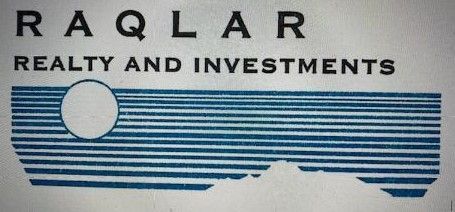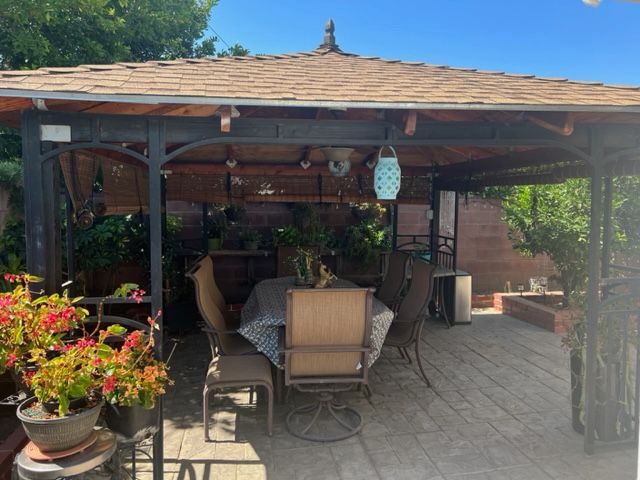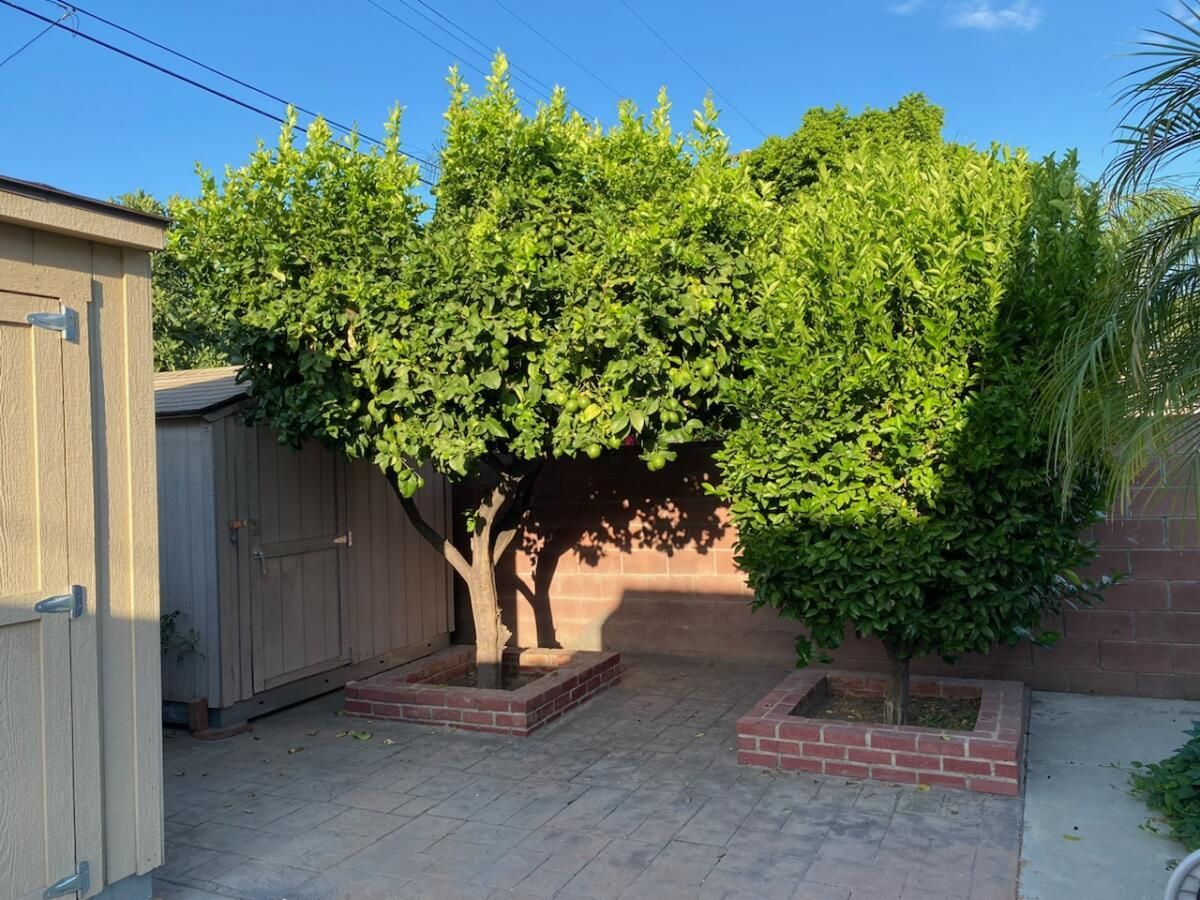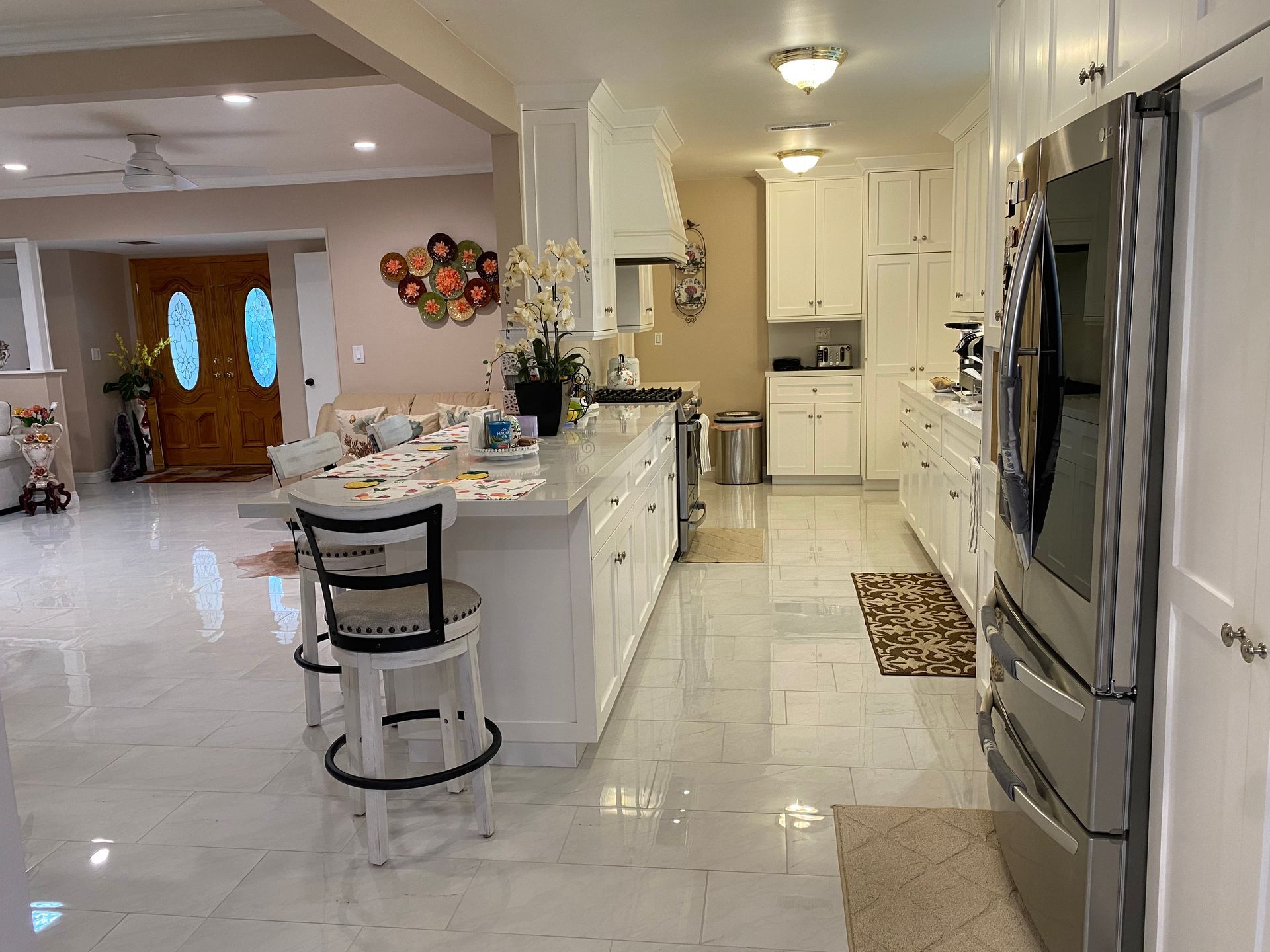21900 Arminta Street Canoga Park CA 91304
THIS HOME HAS BEEN REMOVED FROM THE MULTIPLE LISTING SERVICE.
THERE IS NO ACTIVE LISTING AGREEMENT BETWEEN OWNER AND BROKER!!
Seller does not NEED to sell - Seller WANTS to sell!
If you are interested in possibly buying this home -
Please fill out and submit this form; then text me! All fields MUST be filled!!
Get in Touch

Hi, I'm !
Your #1 real estate educator.
This 4-bed, 3-bath home boasts a formal dining room and private den. Den can easily be 5th bedroom. Elegant ceramic floor tile shines brightly in the quartz countertop kitchen with shaker white cabinets, dining room, and living room; while the den and bedrooms sport handsome redwood laminate floors.
Yearly fruit harvest from persimmon and guava trees in the front yard, a calamansi tree in the side yard, lemon and tangerine trees in the back yard. Bonus in back: A large permanent gazebo and 3 Tuff Shed storage units (2-10’x10’ and 1-8’x8’). No use for storage units, then seller will remove.
Check out the sneak preview photos below!!!
Are you interested? Are you curious? Are you ready to see MORE?
Contact me by submitting the form TODAY.

Seller Concessions
Temporary Interest Rate Buydowns
Lenders calculate the monthly mortgage payment by considering the purchase price, down payment, and market interest rate. However, for the first one, two or three years of the loan the buyer’s principal and interest payments are reduced from what those payments would have been if the interest rate was the market rate the lender offered the buyer.
Permanent Interest Rate Buydowns
Borrowers can permanently reduce their interest rate by seller concessions of up to three discount points for fixed-rate mortgages with loan terms of 15, 20, 30 years, etc., and 5/6-Month, 7/6-Month, and 10/6-Month ARMs (adjustable rate mortgages). The interest rate can be up to 75 basis points lower than prevailing market rates.

What are Seller Concessions?
A seller concession (or seller credit) can include any credit to the buyer for payments such as closing costs, requests for repairs, termite section II costs, homeowner insurance, and the payment owed by the buyer to their own broker (Buyer Representation and Broker Compensation Agreement).
Buyer closing costs consists of loan origination fees, lender inspection fees, recording fees, appraisal fee, loan points (discount points), interest rate buydown, property taxes, title insurance, escrow fees, and in some cases attorney’s fees.
Use the estimated closing costs provided by your lender to give you an idea of what to ask the seller to pay for.
Larry
Permanent Buydown Advantages
Easier Qualifying
Stable Payment
Long-term Savings
Interest Savings Predicted
Temporary Buydown Advantages
Lower Up Front Fees
Initial Affordability
Flexibility
1 - 3 Year(s) Int. Savings
Easily Refinanced

Written Buyer Agreements
(Buyer Representation and Broker Compensation Agreement)
Find more questions and answers at NAR Settlement FAQs
No.
In this case, since the MLS Participant is only working for the seller, and not the buyer, the MLS Participant does not need to enter into a written agreement with the buyer.
No.
An agreement is not required because the participant is performing work for the seller and not the buyer.
Are written buyer agreements required when MLS Participants perform ministerial acts?
An MLS Participant performing only ministerial acts—and who has not taken the buyer to tour a home—is not working with the buyer and therefore does not yet need to enter into a written buyer agreement. (Updated 7/23/24)
Ministerial acts: those acts that a licensee may perform for a consumer that are informative or clerical in nature and do not rise to the level of active representation on behalf of a consumer.
Are written buyer agreements required in a dual agency scenario when a single agent works both for the seller and for the buyer?
Yes.
If an MLS Participant is working as an agent for a buyer, a written agreement is required.
Limits for Seller Concessions
The limit for conventional loans depends on how much you’re putting down:
If your down payment is less than 10%, the seller can contribute up to 3%.
If your down payment is 10% – 25%, the seller can contribute up to 6%.
If your down payment is more than 25%, the seller can contribute up to 9%.
If you’re buying an investment property, the seller’s contribution is limited to 2%, no matter what your down payment is.
For all Federal Housing Administration (FHA) loans, the seller can contribute up to 6% of the purchase price. Concessions on FHA loans can be put towards closing costs, appraisal fees and other expenses related to this real estate purchase.
Department of Veterans Affairs (VA) loan rules dictate that the seller can contribute up to 4% of the purchase price. Seller concessions on VA loans may include payments toward a buyer’s judgments and debts, as well as VA funding fees.











